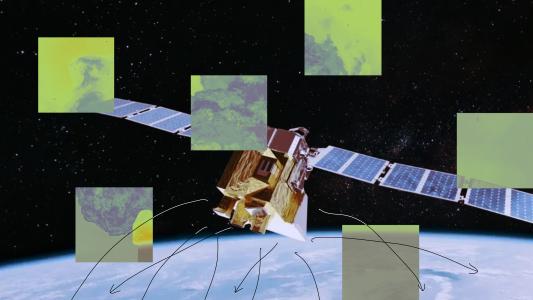San Francisco-based startup Magic AI just secured more than $100 million in funding to develop an AI software engineer, which it sees as a milestone along the path to artificial general intelligence (AGI).
The background: Everything we see and do on our devices starts as code, and traditionally, that code was written by trained software engineers. In 2021, OpenAI disrupted this paradigm with CODEX, an AI that can write computer code in response to prompts written in natural language.
CODEX became the basis for GitHub Copilot, a tool that speeds up programming by generating new code in response to prompts, auto-completing code an engineer has started writing, and more. This can speed up programming by an average of 55%, and more than a million developers have used GitHub Copilot since its release in 2022.
“If a copilot generates $10b of revenue, how much is a colleague worth?”
Daniel Gross
An AI software engineer: Magic AI aims to take this to the next level by building a code-generating AI so advanced, it’ll be like a software engineer itself, rather than a tool for one to use.
“Early releases will need human supervision, but our ultimate aim is for AI to complete large tasks reliably for you, end-to-end, without babysitting,” co-founder and CEO Eric Steinberger told TechCrunch in 2023.
What’s new? Magic AI raised $28 million in 2022 and 2023, and it has now announced the closing of a $117 million investment round, with former GitHub CEO Nat Friedman and his investment partner, Daniel Gross, leading it.
“Nat and I are delighted to be investing $100m in Magic.dev which is building a superhuman software engineer,” tweeted Daniel Gross. The greater capabilities of the system, he suggests, will vastly surpass what is being done now with “copilot” tools: “If a copilot generates $10b of revenue, how much is a colleague worth?”
“We’re thinking a lot further than just code completion.”
Eric Steinberger
How it works: Magic AI has yet to release a product, so it’s not clear how close it is to revolutionizing the software industry, but a key part of its plan seems to involve how much information a person can feed a generative AI in a single prompt.
While GitHub Copilot had an input limit of 8,000 “tokens” (tokens can be words, punctuation marks, and other meaningful units of text) as of August 2023, Magic AI claims a prototype it’s developing for its AI software engineer has a limit of 5 million tokens.
According to Friedman, an AI programmer with this capability could “reason over your entire codebase … If this sounds like magic… well, you get it.”
Looking ahead: Magic AI hasn’t said when it plans to release its first product, but the company has said it intends for the AI software engineer to be just one step toward its ultimate goal: AGI, a still-hypothetical “artificial general intelligence” capable of human-level reasoning.
“We’re building towards AGI and safe AGI in particular,” Steinberger told This Week in Startups in 2023. “The code completion product we built is a very good way for us to have early grounding in a user experience and customer feedback…but we’re thinking a lot further than just code completion.”
We’d love to hear from you! If you have a comment about this article or if you have a tip for a future Freethink story, please email us at [email protected].






